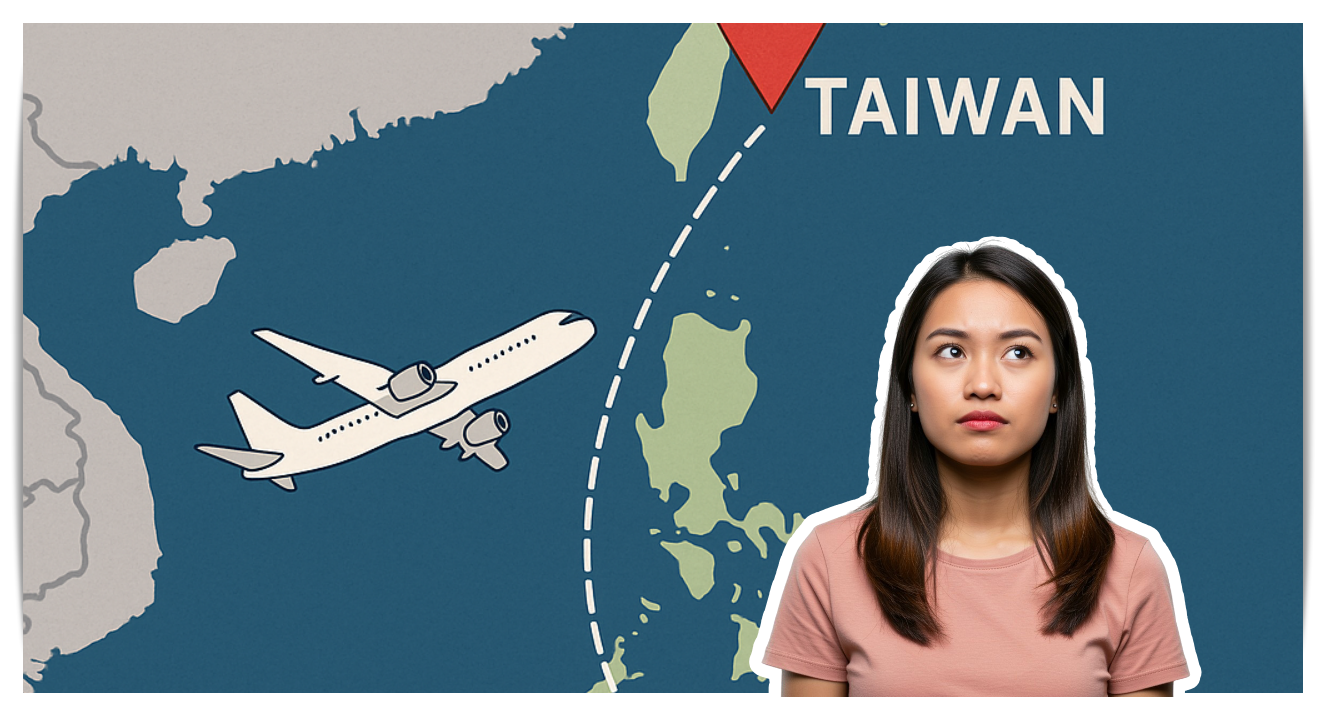When I first started thinking about working abroad, I had a lot of questions. Would I earn enough to support my family? How far would I be from home? Would I feel safe? And most of all—could I actually see myself living there?
That’s when I came across Taiwan.
At first, I didn’t know much about it. But the more I looked into it, the more it made sense. The pay was decent, a lot of contracts included free housing and meals, and it was just a short flight from the Philippines. Plus, I found out that there were already thriving Filipino communities in cities like Taipei and Kaohsiung.
If you’re in the same place I was—considering your options and wanting something stable but not too far from home—here’s why Taiwan might be the right fit for you too.

Competitive Salaries You Can Rely On
Taiwan’s industrial sector is booming, and it needs workers—especially in electronics, semiconductors, and manufacturing. Factory workers in Taiwan can earn between TWD 31,900 to TWD 40,500 per month. In Philippine pesos, that’s about ₱58,000 to ₱74,000.
Caregivers and domestic workers also receive fair wages, especially with regular increases in Taiwan’s minimum wage. While caregiving jobs may offer slightly lower base salaries, they often come with free food, housing, and transportation, which significantly boosts your take-home pay.

Free Housing and Meals: Less Worry, More Savings
Many OFWs in Taiwan enjoy free accommodations as part of their contracts. This includes factory workers and caregivers alike. In some cases, employers also provide free meals or meal allowances—a huge relief for workers trying to save for their families back home.
Because daily expenses are covered, your salary can go straight into your savings, remittances, or long-term plans.
Strong Labor Laws That Work for You
Taiwan is known for its strict labor protections for migrant workers. The Ministry of Labor enforces contracts, regulates agencies, and regularly checks on working conditions.
You also have access to:
- Health insurance and labor insurance
- Regular days off and rest hours
- Hotlines and government channels for filing complaints
While no system is perfect, Taiwan has made real improvements in the rights and well-being of OFWs—especially compared to other countries.
Just a Few Hours from Home
Taiwan is only a two-hour flight from Manila, making it one of the most accessible countries for OFWs. The short travel time means:
- Lower airfare costs during vacations
- Easier communication due to similar time zones
- Faster emergency response if you need to go home urgently
It’s a practical choice for those who want to work abroad but stay close to their families.
Filipino Communities Are Already There
Wherever you land in Taiwan—whether it’s Taipei, Taichung, Kaohsiung, or Hsinchu—you’ll likely find Tagalog-speaking communities nearby. There are Filipino churches, support groups, and social clubs that help new OFWs feel less alone.
On weekends, public parks and train stations are filled with kababayans sharing meals, stories, and even job leads. This sense of community can ease culture shock and help you adjust more quickly.
High Demand for Filipino Workers
Taiwan’s aging population and industrial growth mean there’s a constant need for reliable, hardworking foreign labor. Filipinos, known for their adaptability and strong work ethic, are often the top choice for:
- Factory and electronics jobs
- Welding and technical roles
- Domestic work and caregiving
- Food preparation and hotel services
Even if you don’t have experience yet, many jobs offer training programs—especially for caregiving and factory work.
Frequently Asked Questions
1. Do I need experience to apply for work in Taiwan?
Not always. While some factory or caregiving jobs prefer experience, many employers offer on-the-job training for qualified applicants. A good attitude, discipline, and willingness to learn often matter just as much.
2. What is the age limit for OFWs applying to Taiwan?
Age requirements vary by job. For most factory jobs, the preferred age range is 20 to 35 years old, but some caregiving roles accept applicants up to 50 years old. It’s best to confirm with your recruitment agency.
3. Can I bring my family to Taiwan while working there?
In most cases, entry-level contracts do not allow dependents. Some skilled workers with long-term contracts may apply for family reunification, but this depends on the employer and Taiwan’s visa policies.
4. How long are typical contracts for OFWs in Taiwan?
Contracts usually last 2 to 3 years, with the option to renew if the employer is satisfied. Renewal often comes with added benefits, such as salary increases or longer vacation time.
5. Are there days off?
Yes, most contracts include one day off per week, though the schedule depends on the job type and employer.
Final Thoughts
If you’re considering working abroad, Taiwan remains one of the best options for OFWs in 2025. With high salaries, strong worker protections, and a welcoming Filipino community, it’s a destination where you can build a better life while staying close to home.
Whether you’re planning to apply through a recruitment agency or looking for job listings online, Taiwan’s doors remain open—and the opportunities are worth it.
